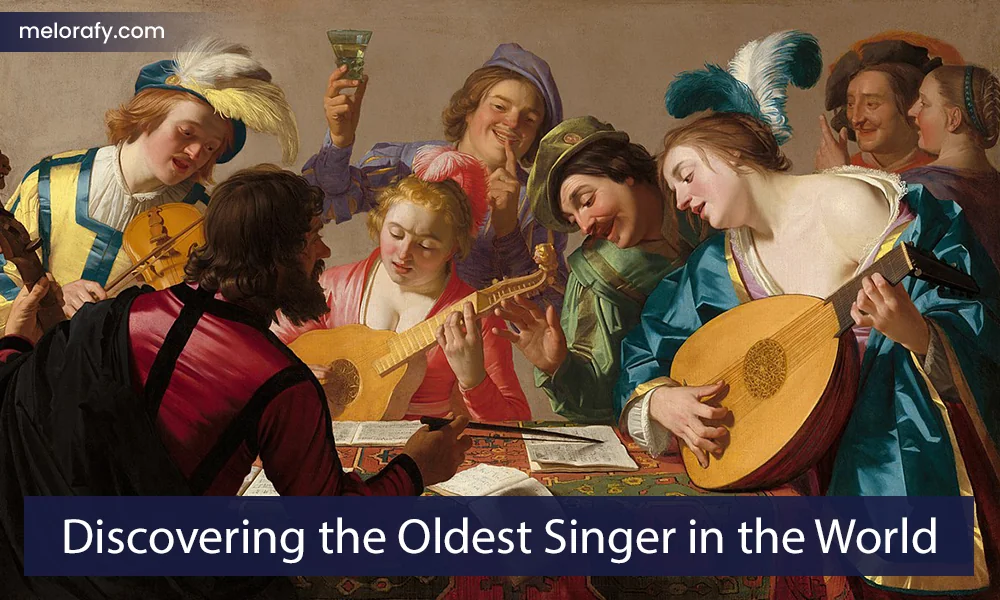
Discovering the Oldest Singer in the World
In an industry that is constantly looking for fresh faces and new talent, the enduring appeal of seasoned singers who have weathered the storms of changing trends goes unnoticed. Not only have these artists left an indelible mark on the world of music, but they continue to inspire and perform, proving that music knows no age. This Melorafy article will take you on a journey to discover the world’s oldest singer and explore the secrets behind their enduring work and the legacy they have built.
The Legacy of Age in Music
Before diving into the names that have become synonymous with longevity in the music industry, it’s essential to understand the context that makes their careers so extraordinary. In a realm where youth is often prized, these singers have demonstrated that talent, dedication, and the ability to connect with audiences transcend age. They remind us that music is an ever-evolving art form that can thrive across different eras, resonating with both young and old alike.
![]()
Unveiling the Oldest Singer
Identifying the “oldest singer in the world” is a challenge, as the title can change and many legendary artists continue to perform and record well into their later years. However, figures like Tony Bennett, who performed well into his 90s, and Charles Aznavour, who took to the stage until his passing at 94, are testaments to the enduring spirit of older musicians. These artists have not only maintained their vocal prowess but have also adapted to the changing tastes of their audience, ensuring their relevance across decades.
The Secret to Their Longevity
What is the secret behind the longevity of these remarkable careers? Several key factors emerge:
Passion for Music:
A lifelong dedication to their craft and the sheer love of music have kept these artists going, providing them with a purpose that transcends age.
Adaptability:
The ability to evolve with the times, experimenting with new genres and technologies, has helped them stay relevant.
![]()
Healthy Lifestyle:
Many of these singers have credited a disciplined lifestyle, with a focus on vocal care, exercise, and nutrition, as crucial to their career longevity.
Connection with the Audience:
A deep connection with their fans, cultivated over years of performances, has created a loyal fan base that supports them through all phases of their careers.
The Impact on the Music Industry
The presence of older singers in the music industry has a profound impact on both the industry and audiences. They serve as bridges between different musical eras, preserving the heritage of music while also contributing to its future. Their careers offer invaluable lessons in resilience, artistic integrity, and the importance of adapting to change without losing one’s essence.
Pioneers of Longevity
While the focus may often be on pop and rock genres, classical music and jazz also boast their share of venerable artists. Figures like Plácido Domingo and Willie Nelson have shown that age is but a number when it comes to delivering performances that captivate and inspire.
![]()
The Eternal Voice of Music
The oldest singer in the world is more than just a title or a record; it’s a symbol of the enduring power of music and the human spirit’s capacity to find expression through art at any age. These artists remind us that music is a lifelong journey that doesn’t have to end as the years go by. Instead, it can continue to flourish, bringing joy, inspiration, and solace to audiences across the globe.
As we celebrate these legendary figures, we are reminded of the universal language of music—a language that knows no bounds, no age, and continues to unite us across time and space. Their legacies teach us that with passion, dedication, and a willingness to evolve, music can be a lifelong companion and a source of endless inspiration.
Advertisements by record companies
In the second half of the 20th century, the music industry went through great stages and developments. In other words, the advancement of technology has changed the way of experiencing and enjoying music many times. Let’s start from the 60s. At that time, cassettes were very common and popular.
Little by little, Sony got hold of the Walkman technology and launched this revolutionary product on the market. In the 80s, there were so many ways to listen and enjoy music that everyone could choose one according to their needs and tastes. Although many recording formats, genres, and musicians have come and gone over the years, the core of the music business remains the same.
The music industry was shaped like a long, wide highway with several heavily guarded gates. First of all, artists had to be discovered by record companies. In fact, the record companies literally “ruled” in those days. These companies provided infrastructure and platforms, but more importantly, they had access to the “media”. Radio and television were the main ways of advertising and artists needed the power of these media to be known and attract more audiences and fans.